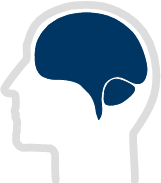International Graduate School of Neuroscience

Colloquium
Stress System Regulation of Inflammation
Monday, October 27, 2014, 11 a.m., Seminar Room FNO - 01 / 117
- Nicolas Rohleder
- Department of Psychology and Volen National Center for Complex Systems, Brandeis University, Waltham, MA, USA
Psychosocial stress is an important precursor of disease and reduced quality of life humans. While research has made major steps forward in understanding the biological pathways between stress exposure and pathophysiological mechanisms underlying disease, one major issue remains. Changes of the stress systems hypothalamus pituitary adrenal (HPA) axis and sympathetic nervous system (SNS) are insufficient in explaining the stress-disease link. Chronic, and systemic low- grade inflammation has emerged as a promising pathway, because elevated inflammation is more consistently found in conditions of chronic psychosocial stress, and these alterations of inflammatory activity can be directly connected with specific pathophysiological mechanisms underlying important diseases associated with chronic stress, such as cardiovascular disease.Transient increases in systemic inflammation have also been found in response to acute psychosocial stress, and tend to be higher in individuals reporting adverse psychosocial states or conditions, such as depression, lower self-esteem, or lower self-compassion. Furthermore, sensitization of inflammatory stress responses to repeated stress exposure is found related with lower subjective social status or perceived purpose in life. Our most recent findings provide a better understanding of mechanisms at multiple levels, from psychosocial to intracellular factors, that contribute to disinhibition of inflammatory processes after stress, and thus predict development of human disease.
Host
- Oliver Wolf
Department of Cognitive Psychology, Faculty of Psychology, Ruhr-University Bochum
